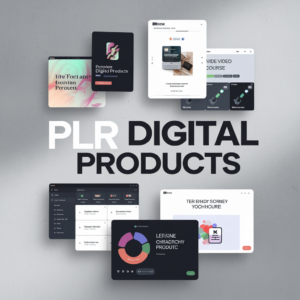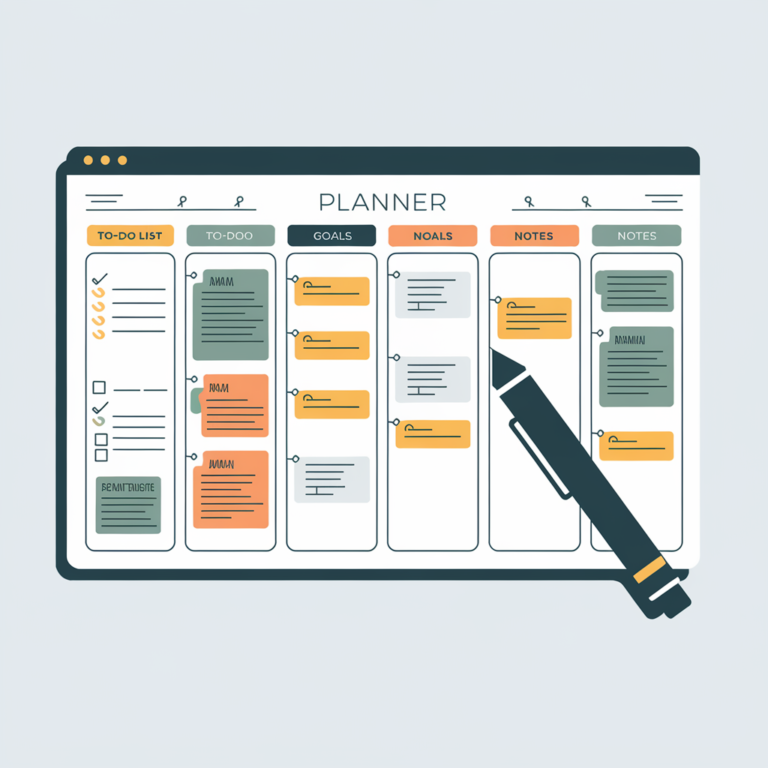The Best Digital Products: A Comprehensive Guide in 2024
Today’s rapidly evolving digital landscape, acquiring the best digital products can be the key to unlocking greater efficiency, productivity, and success in both personal and professional endeavors. With a myriad of options available, making the right choice can seem daunting. This guide aims to provide a clear pathway to selecting top-tier digital products that cater to your specific needs and preferences.
Understanding the Importance of the Digital Products
Digital products have become an integral part of our daily lives. From productivity tools and software solutions to digital media and e-learning resources, these products offer unparalleled convenience and functionality. The right digital products can enhance your workflow, improve communication, and even provide entertainment or educational value.

The quality of digital products directly influences their effectiveness. High-quality digital products are designed with user experience in mind, ensuring that they are intuitive, reliable, and capable of delivering on their promises. Low-quality products, on the other hand, can lead to frustration, wasted time, and potentially even security risks.
Key Factors to Consider When Choosing Digital Products
When selecting the best digital products, several factors should be taken into account. Each of these factors plays a critical role in determining the overall value and utility of the product.
1. Functionality and Features
The first aspect to consider is whether the digital product meets your functional needs. Does it offer the features that are essential for your specific requirements? For instance, if you’re looking for project management software, ensure that it has robust task management, collaboration tools, and integration capabilities with other software you use.
2. User Experience (UX)
A seamless user experience is a hallmark of top-tier digital products. Products with excellent UX are easy to navigate, with interfaces that are both aesthetically pleasing and functional. They should offer a smooth, intuitive experience that minimizes the learning curve and enhances productivity.
3. Security and Privacy
In today’s digital age, security and privacy cannot be overlooked. The best digital products come with strong security measures to protect your data from unauthorized access and cyber threats. Look for products that offer encryption, regular updates, and a clear privacy policy that aligns with your values.
4. Customer Support and Resources
Reliable customer support is crucial, especially for complex digital products. The availability of tutorials, FAQs, and responsive customer service can make a significant difference in your experience with the product. Choose products from companies that are known for their excellent customer service and support resources.
5. Pricing and Value for Money
While cost is an important consideration, it should not be the sole determining factor. Evaluate whether the digital product offers good value for its price. Consider the long-term benefits, including potential updates and the product’s ability to grow with your needs, rather than just the initial purchase cost.
6. Reviews and Testimonials
Before making a final decision, it’s wise to research what other users are saying about the product. Reviews and testimonials provide insights into the real-world performance of the digital product, highlighting both its strengths and potential weaknesses.
Categories of Digital Products to Consider
Digital products come in various forms, each serving different purposes. Below are some key categories of digital products that you might consider based on your needs.
1. Software Applications
Software applications range from productivity tools to creative software and everything in between. They are essential for tasks such as word processing, data analysis, graphic design, and video editing. When choosing software, consider its compatibility with your devices and the specific features that will benefit your workflow.
2. E-Learning Platforms
The rise of e-learning has led to the development of numerous platforms that offer courses and training programs across various subjects. These platforms are ideal for professionals looking to upskill or individuals interested in learning new hobbies. Look for platforms that offer accredited courses, a wide range of subjects, and interactive learning tools.
3. Digital Media Products
Digital media products include music, videos, e-books, and digital art. These products are often consumed for entertainment, education, or professional use. When purchasing digital media, consider the format, quality, and compatibility with your devices.
4. Cloud Services
Cloud services have revolutionized the way we store and access data. They offer scalable storage solutions, collaboration tools, and easy access to your files from any device. When selecting a cloud service, evaluate its storage capacity, security features, and ease of use.
5. Mobile Applications
Mobile apps are designed for convenience, allowing you to perform various tasks on the go. From productivity and fitness apps to games and financial management tools, there is an app for almost everything. When choosing a mobile app, consider its user ratings, update frequency, and compatibility with your operating system.
Steps to Ensure You Get the Best Digital Products
To make the most informed decision, follow these steps when selecting digital products.
1. Identify Your Needs
Start by clearly defining what you need the digital product for. This will help narrow down your options and ensure that the product you choose aligns with your goals.
2. Research Thoroughly
Take the time to research various products within your chosen category. Compare features, pricing, and user reviews to get a comprehensive view of what’s available.
3. Test Before You Buy
Many digital products offer free trials or demo versions. Take advantage of these to test the product’s functionality and see if it meets your expectations before committing to a purchase.
4. Seek Expert Opinions
Consulting with experts or reading in-depth reviews from trusted sources can provide valuable insights. Experts often highlight aspects that might not be immediately obvious, helping you make a more informed decision.
5. Consider Long-Term Usability
Think about how the digital product will serve you in the long run. Is it regularly updated? Does it have the capacity to grow with your needs? Investing in a product that offers long-term value is often more cost-effective than opting for a cheaper, less versatile option.
Conclusion
Selecting the best digital products requires careful consideration of functionality, user experience, security, customer support, and value for money. By taking the time to research and evaluate your options, you can ensure that you invest in digital products that will enhance your productivity, security, and overall experience.







